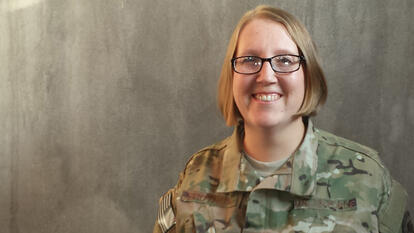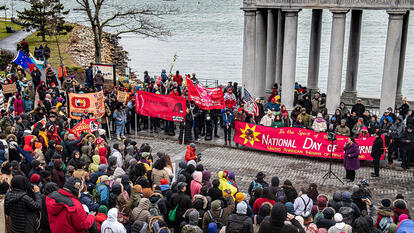Wellesley Celebrates a Year’s Worth of Faculty Scholarship

The Celebration of Faculty Scholarship on September 20 featured the academic and creative contributions one hundred and sixteen faculty members made to their fields during the previous year. Attendees, including President Paula Johnson, slowly walked around the Bracket Reading Room, admiring the articles, books, and CDs, including one by Martin Brody, Catherine Mills Davis Professor of Music, which played softly in the background.
“Witnessing the varied interests, prominence, and creativity of the Wellesley faculty is truly inspiring and a wonderful way to begin the new academic year,” said Kathryn Lynch, dean of faculty affairs and Katharine Lee Bates and Sophie Chantal Hart Professor of English. “The bountiful display of faculty work once again demonstrated the impressive productivity of the College’s faculty.”
That productivity included data-driven research, cultural criticism, creative writing, and contemporary analysis of classic texts. The displays, arranged alphabetically by the author’s last name, reflected the wide array of disciplines that distinguish the liberal arts model of education. On one table, for example, a collection of new poems, written in Spanish, sat near a book about storytellers in a changing world and articles on astrochemistry. Another table featured work on SNAP benefits and food security for children, coumarin derivatives in cancer therapy, and the impact of diversity and inclusion on learning technologies.
As more and more faculty members arrived, the room filled with conversation about the importance of both the sciences and the humanities and how they can converge to spark meaningful change. Many of the works on display also pointed to such intersections.
Scientific articles covered topics such as how the hippocampus shapes people’s decisions, the impact of estradiol on progestin receptors in the female mouse hypothalamus, managing biodiversity in a changing climate, and using TwitterTrails.com to investigate rumor propagation.
A number of social science papers addressed topics that have a direct impact on the lives of millions, such as controlling health-care costs through limited network insurance plans, the dynamics of consumer unsecured debt and bankruptcies, strategies for preventing teen dating violence, U.S. child care policy, cultural appropriation, and how making decisions in college can be practice for life.
Other works highlighted the ways politics and economics shape current events, as with the impact of information provision on public consensus about climate change; how history and the classics provide enduring lessons; and how various forms of communication have affected people’s thoughts about gender, race, and grassroots democracy. Several writers also explored how their lives have been affected by historical events, social norms, or overcoming personal challenges.
“The event is a highlight of the fall semester, and the attendees’ lively discussions last long after the official end of the celebration,” said Lynch. “That was especially true this year because President Johnson’s ideas about the transformative power of intersections have excited so many people on campus.”
To learn more about this year’s event, download the full catalog of work presented.



